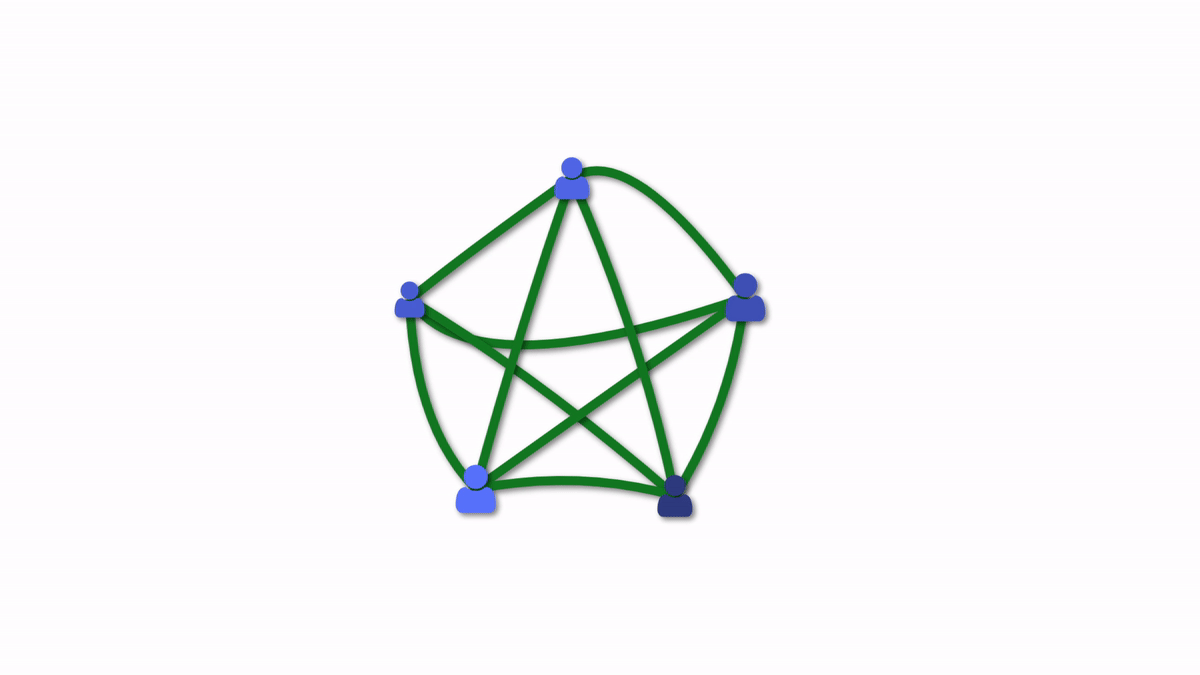
What if we could visualise the cost of attrition?
Here’s a team. Someone leaves. We hire a replacement.
We get lucky and manage to find someone more skilled. Looks like we’re better off?
Really when someone leaves we lose all the relationships they had with the rest of the team as well. The team is a diminished more like 40% than the apparent 20% by their loss. It takes longer to rebuild the team than is apparent. Relationships take time.
It’s worse than that. The team probably wasn’t maximally-connected to start with. And it’s not just the interpersonal relationships that matter but the knowledge of tech and domain. A departure can break teams apart and organisational knowledge needs to be rebuilt.
Your organisation probably has multiple teams. Someone leaving your team reduces its connectedness to the rest of the organisation. Increasing the time to recover even with a swift new hire.
Internal mobility is less of a hit to the team’s connectedness due to pre-existing relationships. It also increases the whole organisations resilience by establishing more inter-team relationships.
Teams following the Isolated-individual model of work… (as opposed to collaborative work like pairing and collective ownership) …are particularly brittle & significantly impacted by staff churn.
How would we think about retention if we could visualise the full impact of someone leaving our team?
Beware looking at teams on a spreadsheet. If you have a hiring rate matching attrition rate it might look like the team health is maintained. It’s probably not.
Tracking tenure by team and average tenure in team can be interesting proxy indicators. Teams can be growing but have dropping tenure.
Bear in mind “All models are wrong, some are useful”. Sometimes teams benefit more from fresh ideas than the value of relationships lost in a change. Sometimes gaining someone who helps everyone else in the team form connections at a faster rate can accelerate the team.
This post is also available as a Twitter Thread
Here’s a team. Someone leaves.
We hire a replacement.
We get lucky and manage to find someone more skilled.
Looks like we’re better off? [1/10] pic.twitter.com/nSE8wJxElo
— Benji Weber (@benjiweber) January 9, 2022
